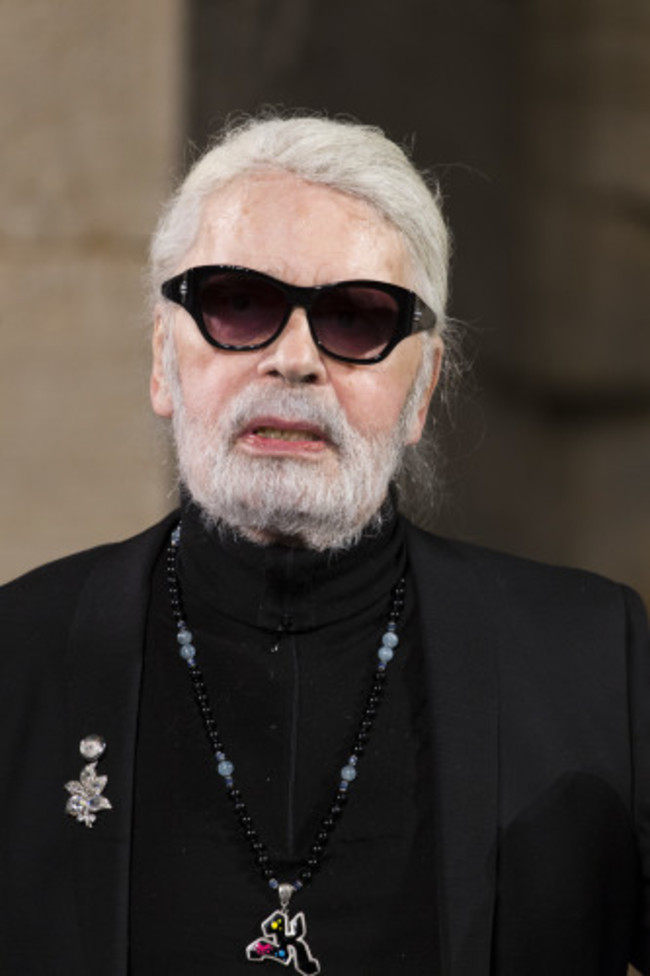I DON’T KNOW when I first became aware of Karl Lagerfeld; so-called iconic figures like Lagerfeld aren’t people you’re introduced to, but individuals you simply accept without question.
Their existence seems ever-present, and, as such, few of us can remember a time when we didn’t know of them; they simply are and always have been.
For much of my life, I considered Karl Lagerfeld more abstractly than actually, understood he was thought of as somewhat of a deity in the world of fashion, and knew he had cultivated an almost ethereal-like appearance.
He had, in other words, been elevated to the realm of the otherworldly, but in recent years, Lagerfeld began descending.
Slowly but surely he came into focus in my eyes, and unfortunately the sharpening of perspective revealed a controversial figure, prone to contentious ideas and opinions.
Indeed, I associated Chanel’s creative director with barbed comments, fat-shaming rhetoric and an air of disdain when it came to the discussion of issues surrounding the Me Too movement.
Karl Lagerfeld was a victim-blaming, fat-shaming man who literally said “If you don’t want your pants pulled about, don’t become a model! Join a nunnery, there’ll always be a place for you in the convent.” When asked about #MeToo. Forgive me if I don’t make an RIP post on IG
— Alyssa (@fizzylyss) February 19, 2019
And so, a distinct pattern which emerged in the myriad acknowledgements made about Lagerfeld surprised me somewhat yesterday.
Over and over and over again, the word ‘kind’ and its derivatives featured in his tributes.
From peers to protégés, Karl’s ‘kindness’ appeared to be his defining feature – an unmistakable departure from the public persona he appeared to have cultivated in recent times.
And it is undoubtedly this disparity which resulted in the mixed response the news of his passing was met with yesterday.
While many were quick to pay their respects, others were equally as quick to warn against unnecessarily glorifying the dead.
Let’s consider the perspective of Jameela Jamil from The Good Place and Queer Eye’s Tan France in this instance.
Responding to an article entitled ‘Stop Mourning Oppressors: Anti-Condolences for Karl Lagerfeld’, Jameela wrote: “I’m glad somebody said it. Even if it is a little soon.”
A ruthless, fat-phobic misogynist shouldn’t be posted all over the internet as a saint gone-too-soon. Talented for sure, but not the best person.
I’m glad somebody said it. Even if it is a little soon. A ruthless, fat-phobic misogynist shouldn’t be posted all over the internet as a saint gone-too-soon. Talented for sure, but not the best person. https://t.co/RK3Q9HilpP
— Jameela Jamil (@jameelajamil) February 19, 2019
Tan, on the other hand, acknowledged Lagerfeld’s problematic narrative, but felt talent and age can be used to soften the severity of his past comments.
Speaking to BBC Breakfast, Tan said
He was a man of a certain age and I think that he thought he could get away with some of his comments. Some of those comments were very mean, but as far as his work goes, he was incredible.
“He was iconic and he was one of the most influential people in this industry,” Tan continued.
I will forgive him some of his comments because he was so impactful in what he did, and sometimes I think that people of a certain age get a pass if they’re going to make a comment.
“I don’t think it’s wise, but let’s forgive them or explain why it’s not right and move forward… and I won’t speak ill of the dead,” he added.
Is it a case of simply needing to separate the person from the persona, or is it an ill-advised inclination to prioritise talent over tolerance?
Tan and Jameela’s differing opinions seem to be indicative of the wider response in the wake of Karl’s passing, and there is little doubt that the designer’s legacy lies in the eye of the beholder.










COMMENTS (2)